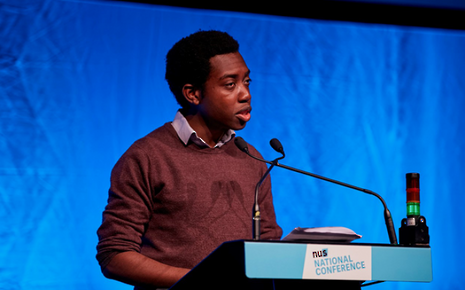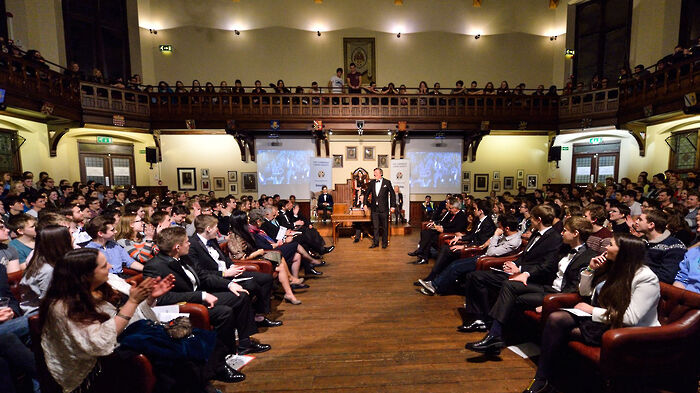Amatey Doku defends students from ‘snowflake’ label at parliamentary hearing
Doku disagreed with Jo Johnson’s claims on free speech while also criticising the government’s Prevent programme

Former CUSU president Amatey Doku has told a parliamentary committee that the narrative of students being “snowflakes” is “not based in fact”.
Doku, who currently serves as NUS vice-president for higher education, was among several witnesses in Wednesday’s session of the Joint Committee on Human Rights, which is currently investigating free speech in universities.
He added that there is a “tiny pool” of examples of students trying to restrict speech with which they don’t agree.
His words clash directly with those of recently removed universities minister Jo Johnson, who claimed that no-platforming and safe-spaces are putting free speech in universities “under threat”. Johnson presented the protection of free speech as a key role of the controversial new Office for Students. He said that universities could be “fined, suspended or ultimately deregistered” if they fail to uphold free speech.
Doku told the committee that “we need to respond to the evidence and not respond to the very strange narrative we have nowadays that students are snowflakes”. He said that “issues to do with bringing in speakers” are “barely on the agenda at all” in the students’ unions that he has seen.
During the meeting, several witnesses questioned the government’s Prevent policy with regards to free speech. Wes Streeting MP, former president of both CUSU and the NUS, said that “Prevent has more impact on freedom of speech than anything else”. Doku criticised in particular the ambiguity in Prevent’s definition of extremism as “vocal and active opposition to fundamental British values” when it’s “not entirely clear what that means”. CUSU president Daisy Eyre welcomed his comments, telling Varsity that “the constant media narrative of young people as ‘snowflakes’ who are unable to hear opposing views is distracting from the real issues that are facing students”.
In written evidence previously submitted to the committee, the University of Cambridge cited its statement on free speech, saying that it is “fully committed to the principle, and to the promotion, of freedom of speech” and that it “expects all staff and students to receive and respond to intellectual and ideological challenges in a constructive and peaceable way”. It was the only university out of the four who submitted evidence to explicitly defend safe-space policies
 Features / How sweet is the en-suite deal?13 January 2026
Features / How sweet is the en-suite deal?13 January 2026 Comment / Will the town and gown divide ever truly be resolved?12 January 2026
Comment / Will the town and gown divide ever truly be resolved?12 January 2026 News / 20 vet organisations sign letter backing Cam vet course13 January 2026
News / 20 vet organisations sign letter backing Cam vet course13 January 2026 Arts / Fact-checking R.F. Kuang’s Katabasis13 January 2026
Arts / Fact-checking R.F. Kuang’s Katabasis13 January 2026 Music / Inside Radiohead’s circle13 January 2026
Music / Inside Radiohead’s circle13 January 2026









